VictimFocus medical resources

Browse our FREE trauma-informed medical resources
We want to change the way people view mental health and psychological well-being and adopt a trauma-informed approach.
We have created a collection of trauma-informed medical resources for you to download for
FREE!
All resources are copyright ©VictimFocus, please do not copy or redistribute them anywhere.
Dentists and Dental professionals
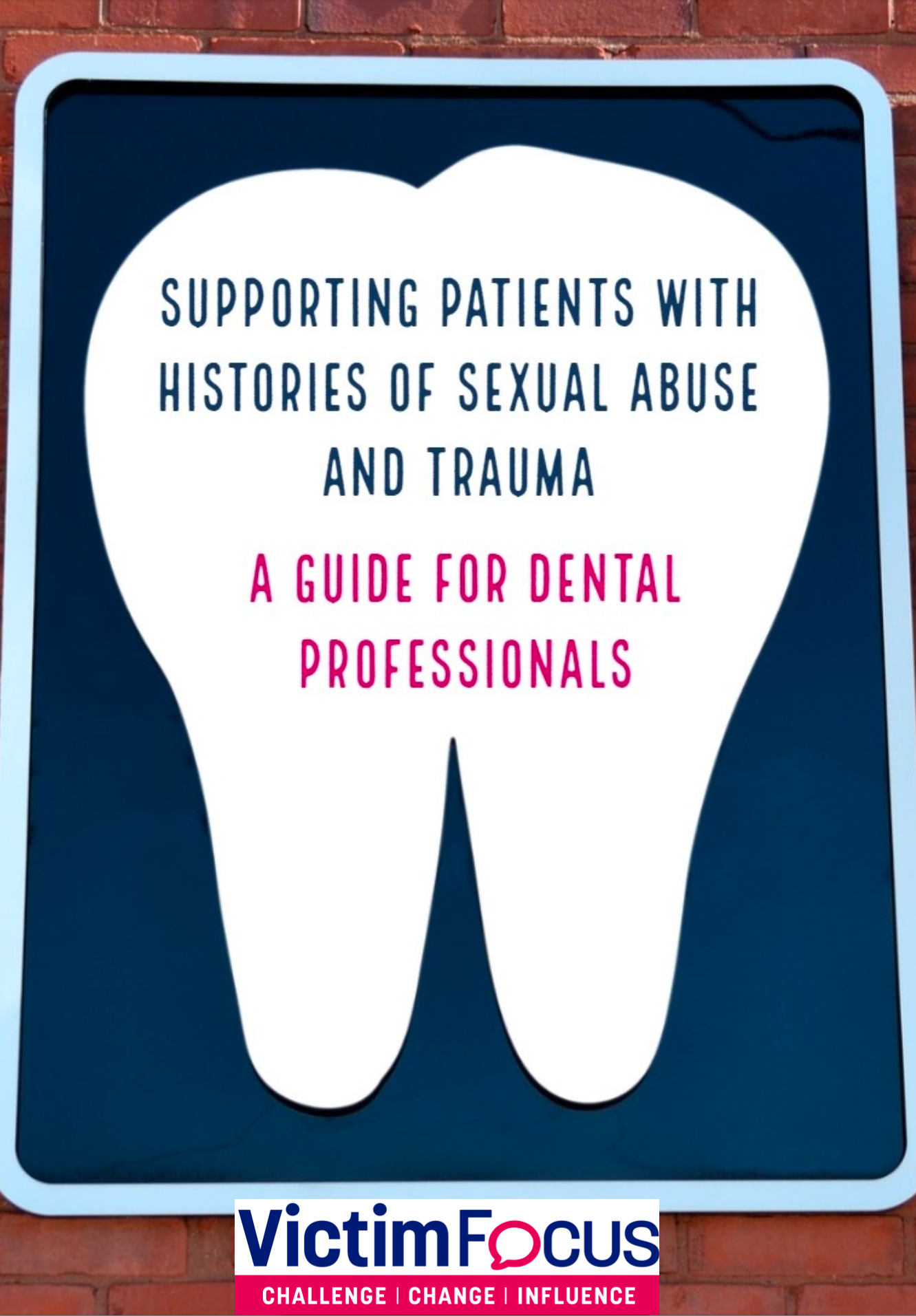
-
Supporting patients with histories of sexual abuse and trauma: A guide for dental professionals
A free resource pack for dental professionals to implement trauma-informed practice and better support for victims and survivors of abuse and trauma when they visit the dentist.
The free resource pack includes:
- A PDF guide for dental professionals
- Two posters for dental practices
- A patient form to collect data on triggers, trauma responses and how to improve practice for your patients.
Click below to download the pack
Pregnancy and birth
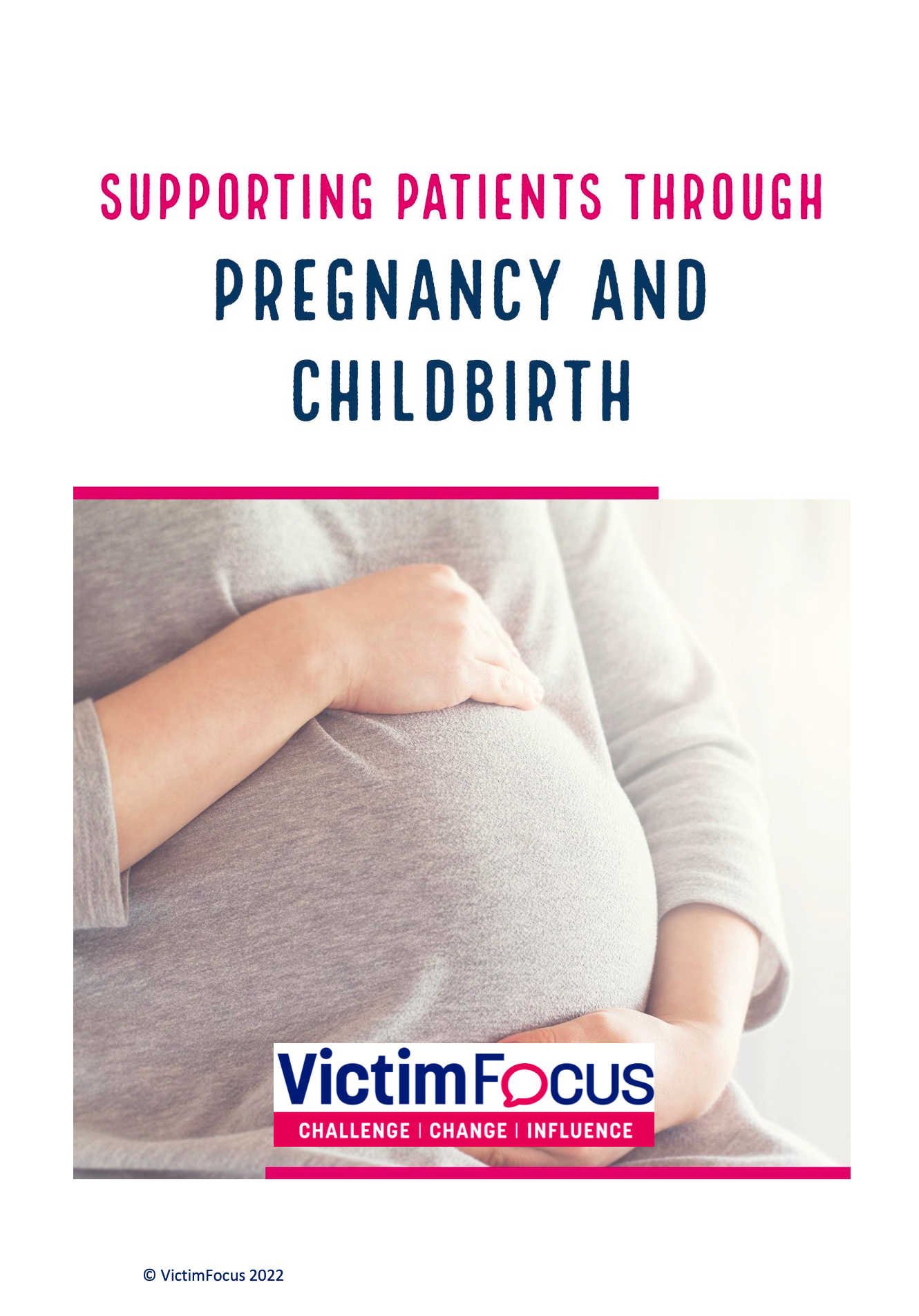
-
Supporting survivors and victims of abuse and trauma during pregnancy and birth
A free resource pack for medical professionals to implement trauma-informed practice and better support for victims and survivors of abuse and trauma when they visit doctors, hospitals or support services during pregnancy, birth, post-natal periods and beyond.
The free resource pack includes:
- A PDF guide for medical professionals
- Two posters for maternity wards, ultrasound services and antenatal/post-natal clinics
- A patient form to collect data on triggers, trauma responses and how to improve practice for your patients
Click below to download the pack
Sexual health checks and cervical screenings
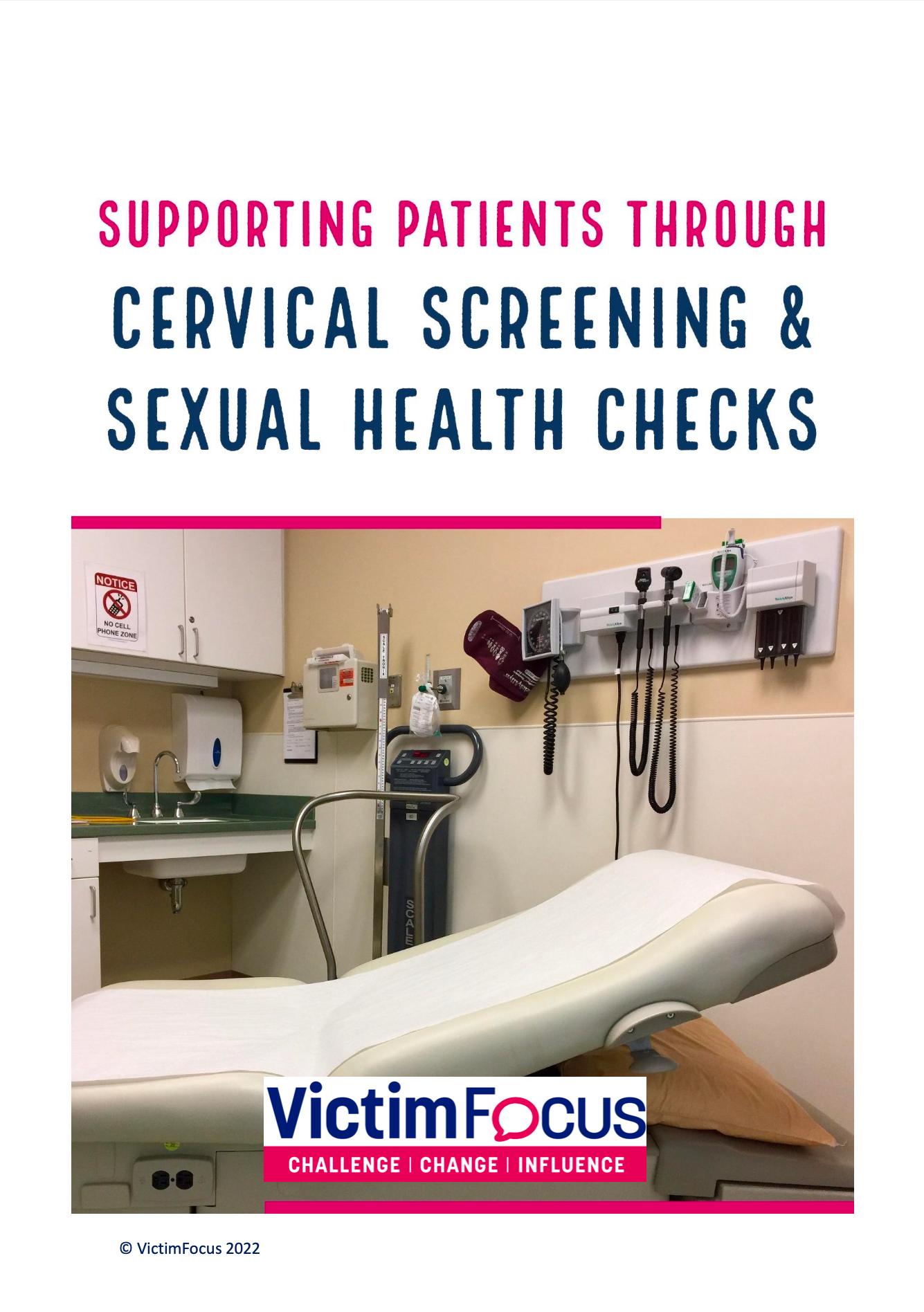
-
Supporting survivors and victims of abuse and trauma at cervical screening and sexual health checks
A free resource pack for medical professionals to implement trauma-informed practice and better support for victims and survivors of abuse and trauma when they visit the clinic or hospital for cervical screening or sexual health checks.
The free resource pack includes:
- A PDF guide for medical professionals
- Two posters for clinics and hospitals
- A patient form to collect data on triggers, trauma responses and how to improve practice for your patients.
Click below to download the pack
Blood tests and injections
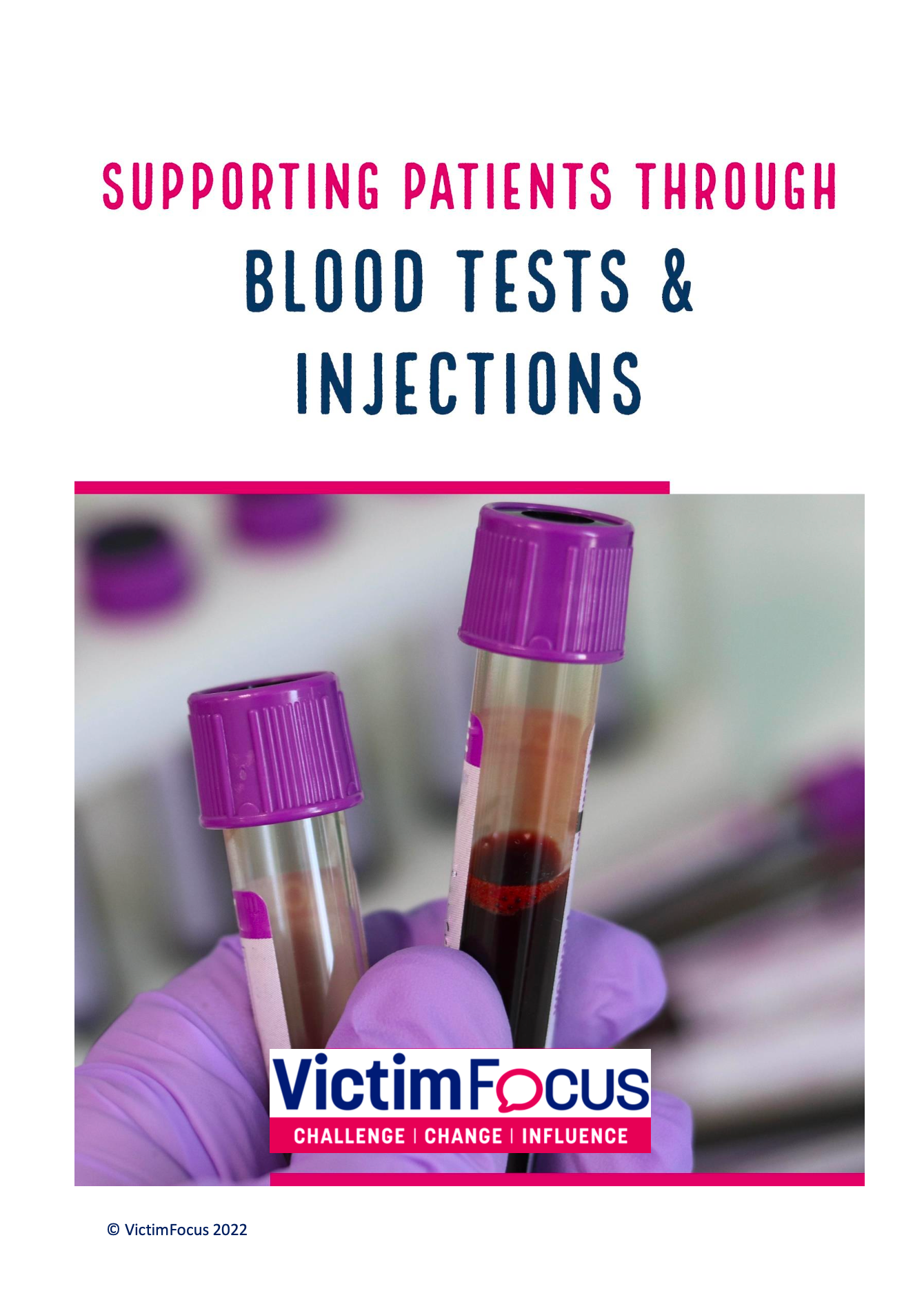
-
Supporting survivors and victims of abuse and trauma through blood tests and injections
A free resource pack for medical professionals to implement trauma-informed practice and better support for victims and survivors of abuse and trauma when they visit the clinic for blood tests or injections/vaccinations.
The free resource pack includes:
- A PDF guide for medical professionals
- Two posters for clinics/hospitals/GP surgeries
- A patient form to collect data on triggers, trauma responses and how to improve practice for your patients.
Click below to download the pack
Medical Appointments
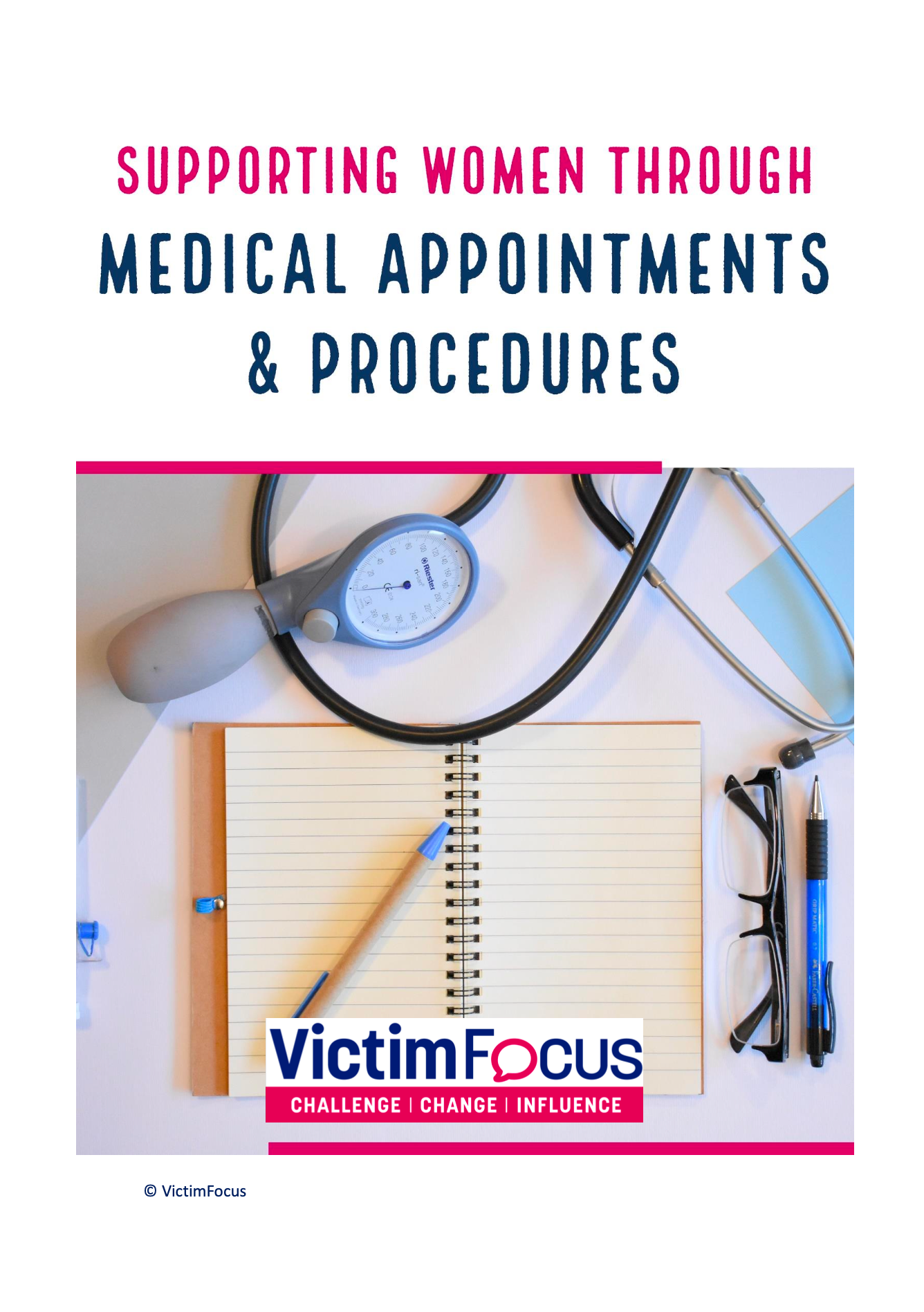
-
Supporting women subjected to abuse and trauma at medical appointments
A free resource pack for medical professionals to implement trauma-informed practice and better support for women subjected to abuse and trauma when they visit a medical setting for any kind of appointment that may trigger them or cause them worry.
The free resource pack includes:
- A PDF guide for medical professionals
- Two posters for medical settings of any kind
- A patient form to collect data on triggers, trauma responses and how to improve practice for your patients.
Click below to download the pack
Hallucenations
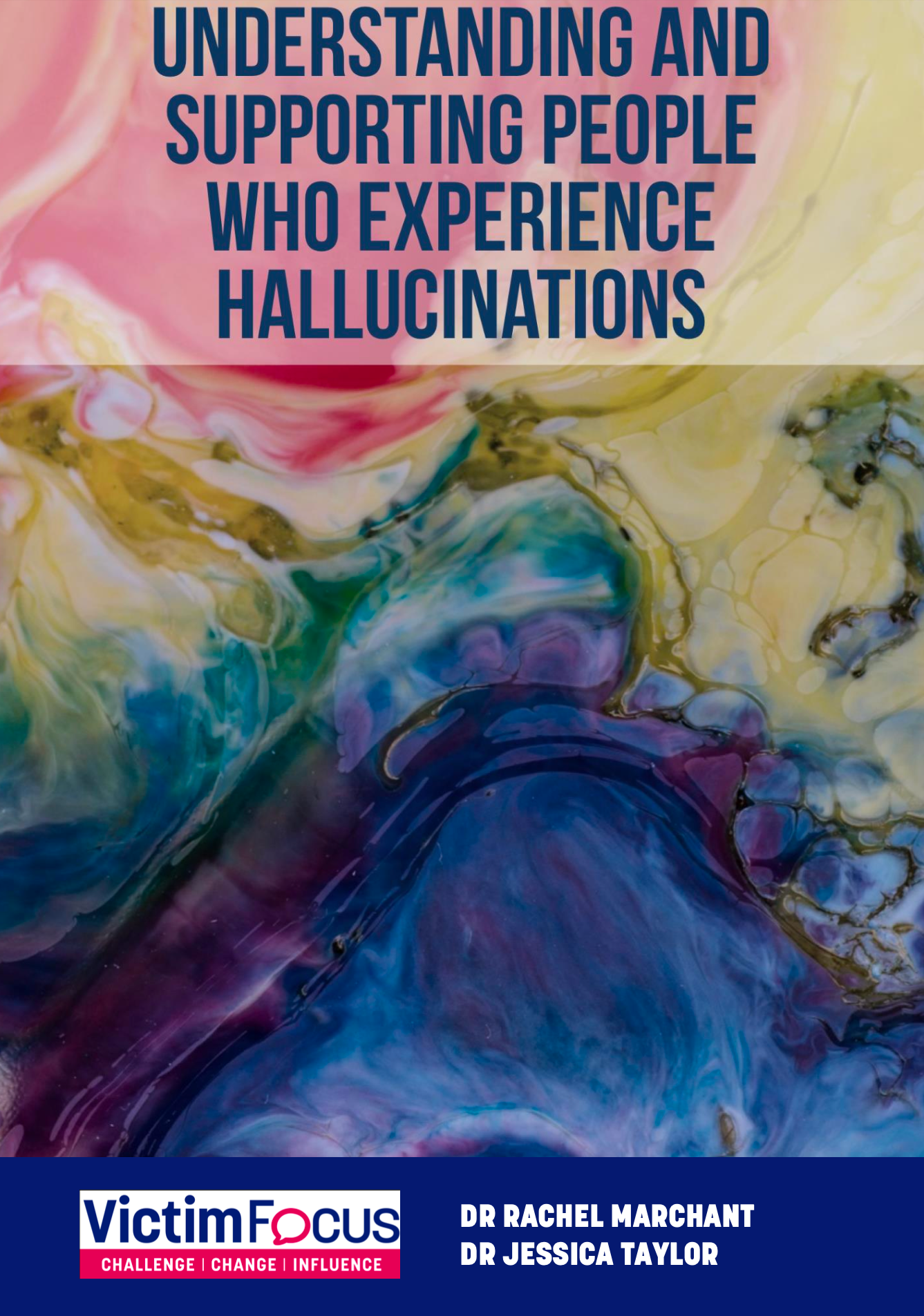
-
Understanding and Supporting People who Experience Hallucinations
written by Neuropsychologist Dr Rachel Marchant, Illustrated by Alex Craig and edited by Psychologist, Dr Jessica Taylor
October 2021
In the 82-page, free handbook, neuroscientist Dr Rachel Marchant explains what she has learned about hallucinations in people who are considered to have ‘disorders’, and those without. Interestingly, she argues that hallucinations are common, normal, and some studies have found that they occur more frequently in the general public than they do in people who are diagnosed with psychiatric disorders.
This new resource contains key research, explanations, theories, evidence and advice for working with clients aged 16+ who report any kind of hallucinations, experiences or feelings that they want to explore further, including visual, auditory, olfactory and sensory hallucinations. It will help you explore:
What do the hallucinations feel like?
What emotions come with them?
What emotions are felt before they begin and after they end?
What message or purpose does the hallucination have?
This report and related recommendations should be considered vital to any organisation seeking to engage victims, survivors and people with experience of all different types of abuse, oppression, health and illness, loss, distress, and trauma.
We consider that children and adults experiencing hallucinations should be supported in trauma-informed approaches that seek to help the person explore, understand and learn about their hallucinations, and what could be causing them to happen. We have ealso developed a set of interactive flashcards to be used alongside this report.
Click below to download the pack
Survivor speakers
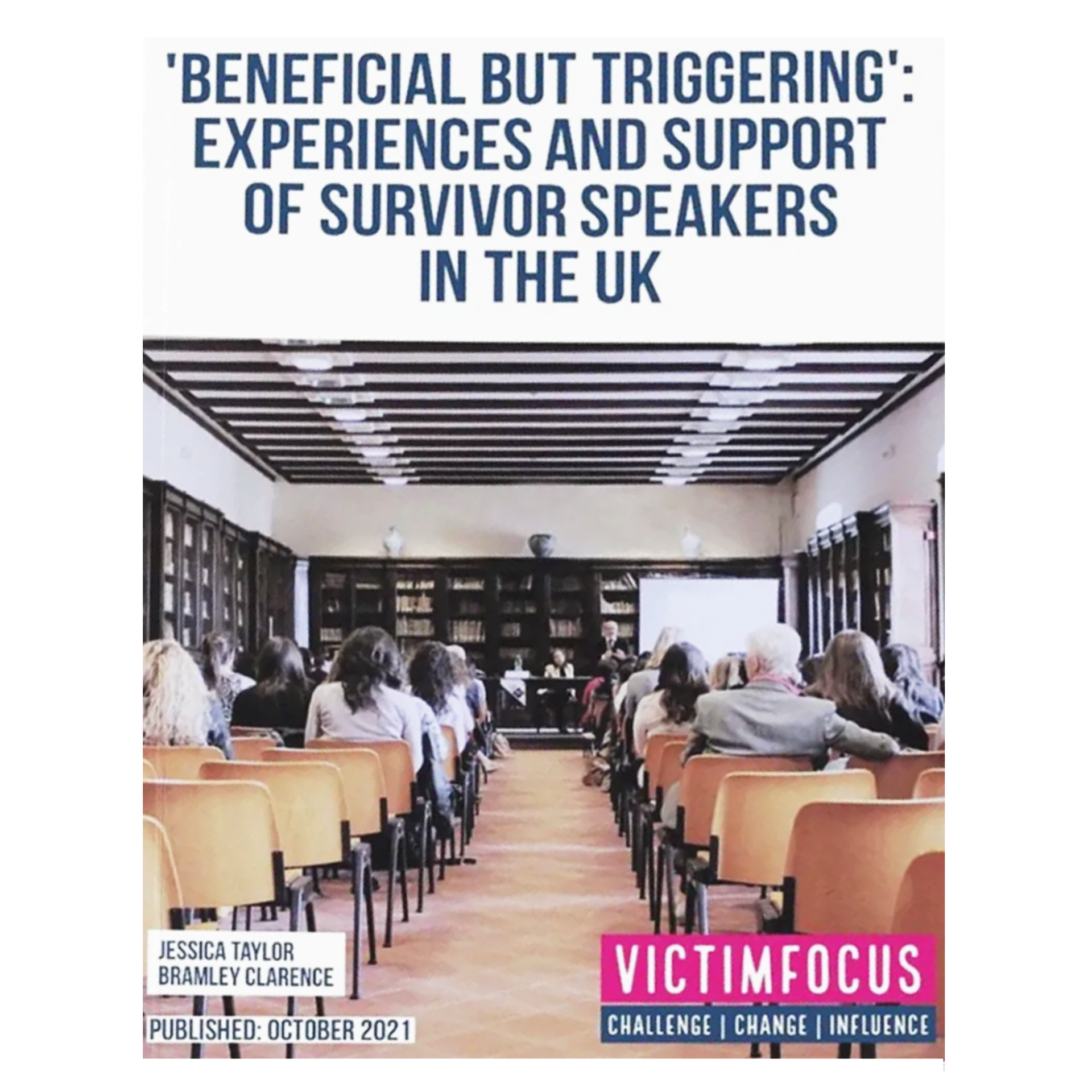
-
'Beneficial but triggering': Experiences and support of survivor speakers and experts by experience in the UK
by Dr Jessica Taylor and Bramley Clarence
October 2021
This report and related recommendations should be considered vital to any organisation seeking to engage victims, survivors and people with experience of all different types of abuse, oppression, health and illness, loss, distress, and trauma.
With many organisations now moving towards, or aspiring to trauma informed approaches and philosophies, now is the time to explore whether asking children and adults to retell their traumas repeatedly, is still needed or indeed, whether it was ever ethical at all.
We are grateful to the 58 survivor speakers from across the UK who took part anonymously. Their experiences show that despite many of them retelling their traumas more than 25 times each, only 9% of them had ever been paid, or had their expenses reimbursed.
Further to the financial exploitation of these roles, only 7% of survivor speakers in our study said that they had ever been offered psychological support, counselling, debriefing or emotional support after retelling their experiences
These findings are somewhat concerning given that most survivor speakers are approached by the charities, services or authorities that helped them, and report feeling obliged to give back by becoming a speaker.
In their experiences of public speaking, over two thirds of the survivor speakers said that they had been subjected to offensive, inappropriate, or hurtful comments and questions from the audience. Around half of them said that retelling their experiences had impacted them negatively and had led to them blaming themselves for being abused, feeling belittled, commodified and triggered.
Click below to download the pack
Buy a print copy (£4)
After CSE Films
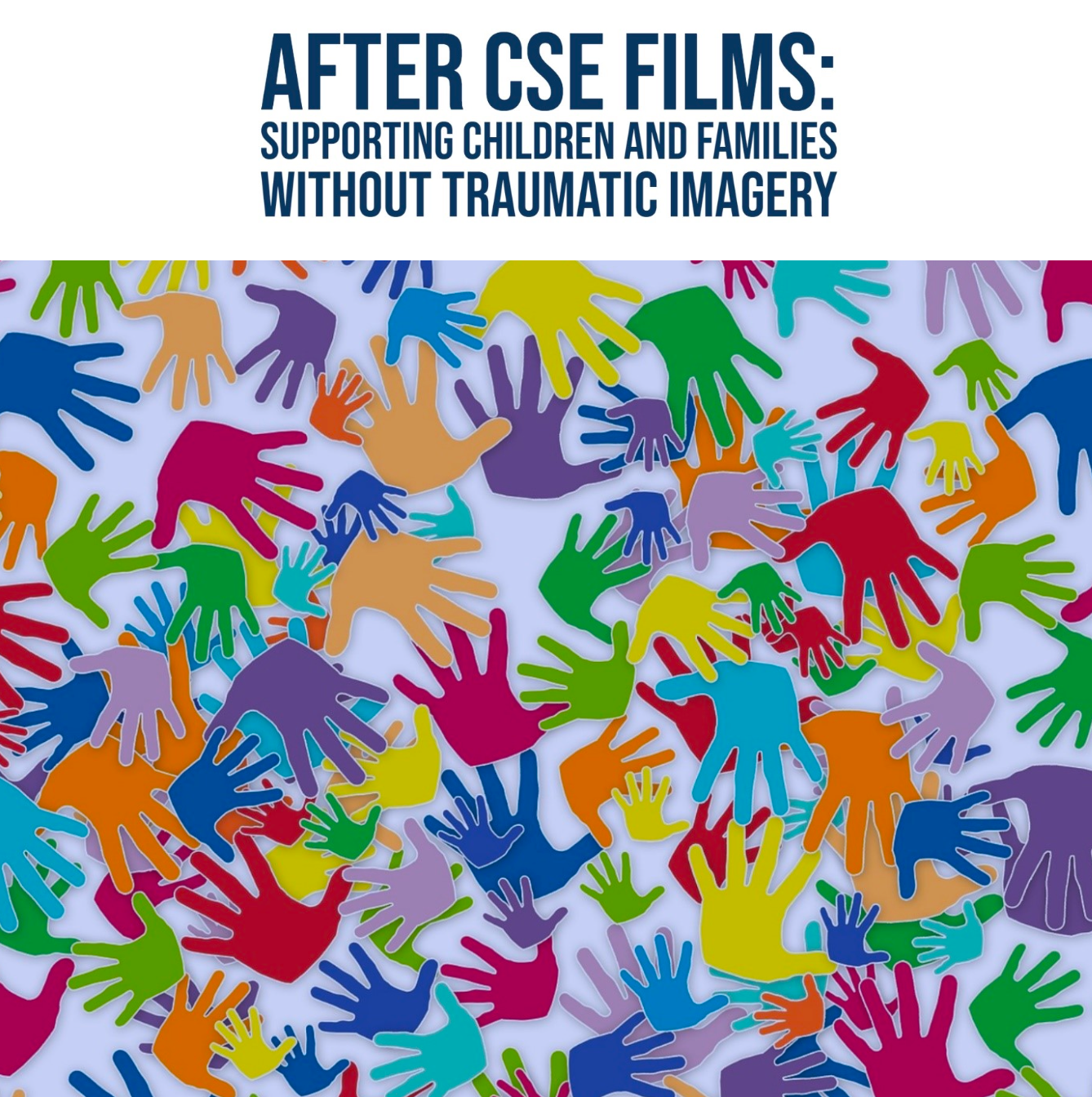
-
After CSE Films: Supporting children and families without traumatic imagery. Practitioner resource and guide
by Jessica Eaton
March 2019
This guide is a free and accessible collection of ideas and advice for practitioners working in child sexual exploitation (CSE) and abuse.
In November 2018, national organisations, local authorities, charities and police forces began to withdraw CSE films from practice. Many practitioners reported that they had never practiced without the films and didn’t know how else to support children subjected to sexual violence without them.
In the months following the withdrawal of films, many practitioners wrote to VictimFocus to ask for advice and guidance about alternatives to CSE films.
This guide for practitioners therefore provides valid alternatives to the use of CSE films in practice; both in one-to-one work and in school work with large groups of children.
A special thank you to all VictimFocus peer reviewers of this publication including Mark Monaghan, Sue Whitmore and Jaci Quennell. Thank you for your time and feedback.
Click below to download the pack
